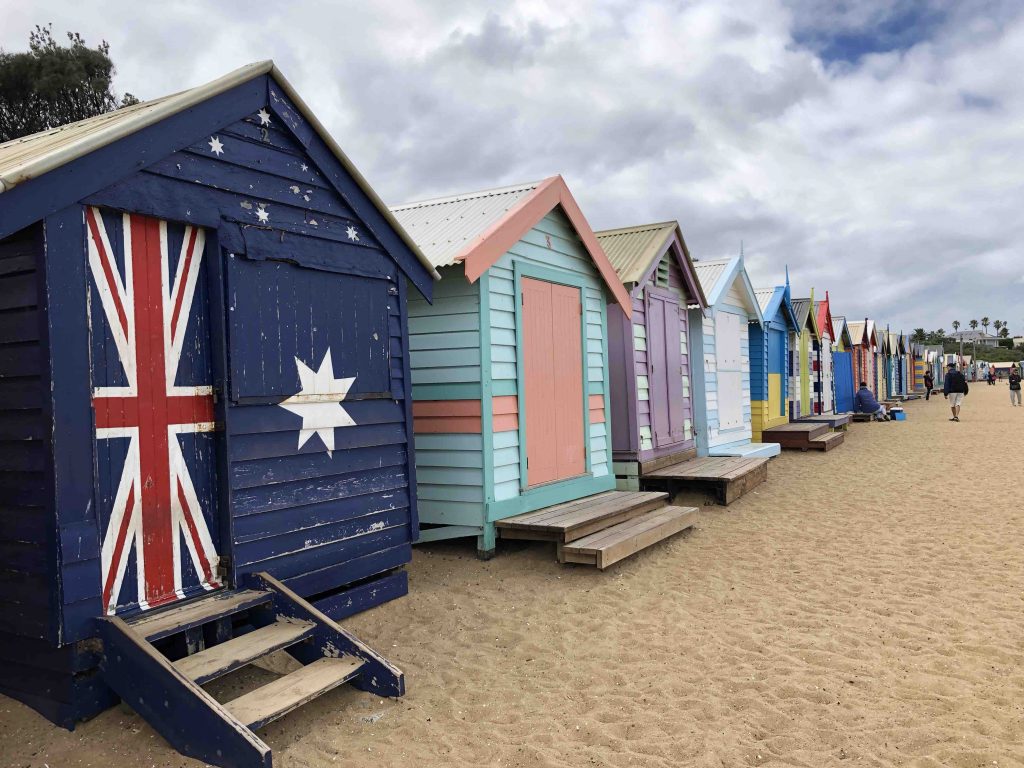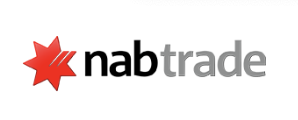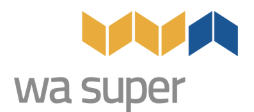
Whether it be the ANZACs, the great sporting rivalries, or just fighting over who invested the lamington, New Zealand certainly has close ties with our neighbour, Australia. We are close enough that a massive number of brands and companies like Bunnings, Harvey Norman, Ryman Healthcare, and Xero have a strong Trans-Tasman presence. Unfortunately, this isn’t always the case when it comes to investing services – you won’t find many Kiwi platforms like InvestNow, Hatch, or Simplicity across the ditch. Though Sharesies has recently changed that, launching for Aussie investors in 2021! Crikey!
In this article Money King NZ will be taking a trip to Australia, providing an overview of some of the popular investing services from across the ditch. Whether you’re one of the 20,000 Kiwis moving there every year, one of the 650,000+ Kiwis already living there, a keen Aussie wanting to start investing, or just curious, this article is for you. No Sharesies, No worries!
Many of the services mentioned in this article only accept customers who are residing in Australia. See my Investment Services page for New Zealand services.
This article covers:
1. Banking
2. Micro-Investing in Funds
3. Investing in Shares and ETFs
4. Superannuation
5. Other investments
Update (1 January 2020) – Added Goodments to the brokers section.
Update (6 September 2021) – Sharesies is now available for Australian investors. Added Superhero to the brokers section.
1. Banking
In addition to finding a place to live and getting a local SIM card, sorting out a bank account is probably near the top of your list when moving to Australia. This will allow you to make and receive payments, and send money to the investment services which I’ll be talking about in this article.
A feature of Australia’s banking industry is that the Australian government guarantees bank deposits of up to $250,000 with Authorised Deposit-taking Institutions (ADIs).
The Big 4 – NAB

Given New Zealand’s banking sector is dominated by the big 4 Australian banks, you’re probably already familiar with them:
| NZ Subsidiary | Australian Parent |
| ANZ | ANZ |
| ASB | CommBank |
| BNZ | NAB |
| Westpac | Westpac |
Not surprisingly, the big 4 also dominate the Australian market. However, my favourite is NAB. Their transaction account has no account fees and provides a free debit card. The other banks typically require you to deposit $2,000 or so per month for them to waive their account fee.
With these banks you can open an account from NZ through their migrant banking channels, and make deposits into the account straight away. Once you arrive in Australia, just turn up to a branch, show your ID and boarding pass, and they’ll fully activate the account for you, allowing you to make withdrawals.
Smaller banks

There are heaps of smaller banks, and also some foreign banks operating in Australia, such as Bendigo bank, Macquarie, Rabobank, and ING. But many of them like Bank of Melbourne are just subsidiaries of the big 4 banks. With these banks you may find more competitive fees and higher savings interest rates compared with the main banks. Examples are:
But don’t expect any amazing with their rates – Aussie interest rates are also going down the toilet, and tend to be lower than NZ rates to begin with. Also be cautious of interest rates that are introductory only (e.g. apply for only 4 months), or those that require you to make a certain number of deposits or transactions before you earn the rate.
Wise

Wise is probably the best service to change your currency from NZD to AUD. Or AUD back to NZD. Or to/from any currency really. Their fees are some of the lowest (way cheaper than using a bank), and transfers between a NZ bank account and Australian bank account normally take just a few business hours.
2. Micro-Investing in Funds
The following micro-investing apps allow you to invest little bits of money at a time into funds. They typically come with slick interfaces and a mobile app to make investing as accessible and easy as possible.
Raiz

Raiz allows you to invest from $5 into a selection of seven funds. All funds are made up of seven different ETFs, with their weightings varying depending on the fund, apart from Emerald which is a socially responsible fund investing in 4 different ETFs, and Sapphire which also includes an allocation towards Bitcoin:
| Fund | Shares | Bonds | Cash | Bitcoin |
| Conservative | 22.50% | 53% | 24.50% | 0% |
| Moderately conservative | 35.40% | 55% | 9.60% | 0% |
| Moderate | 52.80% | 44.20% | 3% | 0% |
| Moderately agressive | 72.20% | 24.30% | 3% | 0% |
| Agressive | 90% | 7% | 3% | 0% |
| Emerald | 72.70% | 21.3% | 6% | 0% |
| Sapphire | 69.10% | 22.90% | 3% | 5% |
They also offer custom portfolios which allow you to construct your own portfolio out of 15 investment options.
Fees are:
- $3.50 per month for balances under $15,000, or 0.275% per year for balances above $15,000
- A fee of between 0.196% and 0.418% per year, that’s incurred by the underlying ETFs that the funds invest in.
Fees differ for the Sapphire and Custom portfolios – check Raiz’s website for full details.
Raiz also has a feature to round up the purchases you make on your bank account to automatically invest your change – a handy time saving feature, leaving Aussies more time to practise their underarm bowling, and cricket ball sanding!
Spaceship Voyager

Spaceship Voyager has no minimum investment amount and offers three different funds:
- Spaceship Index portfolio (0.05% for balances above $5,000) – Invests in 100 Australian + 100 international companies, for a total of 200 companies.
- Spaceship Universe portfolio (0.10% for balances above $5,000) – invests in a handpicked selection of about 100 companies.
- Spaceship Earth portfolio (0.10% for balances above $5,000) – Invests in companies that have a positive impact on people and the planet.
Their fees are dirt cheap, being totally free if you have under $5,000 invested, and a maximum of 0.10% for larger balances. However, the investment choices are limited.
CommSec pocket

CommSec Pocket allows you to invest $50 or more into seven different fund options, each corresponding to an Australian domiciled ETF. They charge a brokerage fee of $2 for trades up to $1,000, or 0.2% for trades above $1,000. The options are:
| Investment option | Corresponding ETF | Management fee |
| Aussie Top 200 | IOZ – iShares ASX 200 | 0.09% |
| Aussie Dividends | SYI – SPDR Aus High Dividend Yield | 0.35% |
| Global 100 | IOO – iShares Global 100 | 0.40% |
| Emerging Markets | IEM – iShares Emerging Markets | 0.67% |
| Health Wise | IXJ – iShares Global Healthcare | 0.47% |
| Tech Savvy | NDQ – BetaShares NASDAQ 100 | 0.48% |
| Sustainability Leaders | ETHI – BetaShares Sustainability Leaders | 0.59% |
3. Investing in Shares and ETFs
The main downside of the above micro-investing platforms is that the investment options are pretty limited. Brokers open the door to many more options:
What you can buy through a broker
Australian listed companies
There are over 2,000 companies listed on the Australian sharemarket (the ASX) compared with only ~160 in New Zealand. You’ll be familiar with many of them such as Wesfarmers (owner of Kmart and Bunnings), Woolworths, Xero, and Dominos Pizza.
Australian domiciled ETFs
While NZ only has around 30 ETFs, Australia has around 170! Some major ETF issuers are:
- Vanguard – Popular ETFs include VDHG, VAS, and VTS. You can also invest in Vanguard products directly without a broker, but this requires a $5,000 investment, and comes with higher management fees.
- BlackRock – The world’s largest ETF issuer issues ETFs under the iShares brand. Popular ETFs include IOZ, and IOO.
- BetaShares – Issues the cheapest Australian shares ETF, A200, with a management fee of just 0.07%.
Listed Investment Companies (LICs)
LICs are essentially companies that invest your money into other companies (in other words, a managed fund structured as a company). Popular examples are Argo, AFIC, and Milton. There are heaps of resources comparing ETFs and LICs, like this one, but just Google if you want more.
International assets
Many brokers give you access to international companies and ETFs, such as the US markets.
Sharesies

Sharesies is a New Zealand based investment platform that has recently become available for Australian investors. They offer investment into the ASX, NZX, and US sharemarkets, with a minimum investment of just 1 cent!
Their brokerage fees start from 0.50% (with cheaper rates for transactions over $3,000), and they also charge a foreign exchange fee of 0.40% if you need to change your money between AUD, NZD, or USD to buy NZ or US shares.
Superhero

Superhero offers investment into ASX (minimum investment $100) and US shares (minimum investment $50 USD).
Their brokerage fees are $5 to buy and sell ASX shares, through this fee is waived for buying (but not selling) ETFs. They do not charge brokerage fees for US shares, but there is a 0.50% foreign exchange fee.
Stake

Stake gives you access to the US sharemarket only, with no minimum investment. They do not charge brokerage fees – you just have to pay a 0.70% foreign exchange fee when transferring your money between AUD and USD.
Goodments

Goodments is like Stake in that they give Aussies easy access to shares listed in the US, with a minimum investment of $1 USD. They also do not charge any brokerage fees, but there is a foreign exchange fee of 0.99%.
SelfWealth

SelfWealth are probably Australia’s cheapest traditional broker charging a flat fee of $9.50 per trade, no matter how big or small the trade is.
They offer something called CHESS sponsorship, which is sadly just as unexciting as Chess, the board game. But the main implication of this is that you own your Australian shares under your own name, under your Holder Identification Number (HIN), as opposed to having them held under a custodian. Your HIN is associated with a broker, but you can easily transfer it to another broker.
The Big 4 – nabtrade

The big 4 banks have their own brokerage platforms, which makes signing up for them a breeze if you already have a bank account with one of those banks:
CommSec is probably the most popular out of these, but not the cheapest ($19.95 for a $5,000 trade). I personally use nabtrade ($14.95 for a $5,000 trade). All of them also offer CHESS sponsorship.
Sharesies and Superhero do not offer CHESS sponsorship on your ASX shareholdings, instead holding your shares under custody.
4. Superannuation
Superannuation, or just ‘Super’ is Australia’s equivalent of KiwiSaver. They should have called it KangarooSaver or KoalaSaver in my opinion! It works by requiring your employer to contribute 10% of your ordinary income into your Super fund. You can also ‘salary sacrifice’ (contribute your own income) into your Super, which may have tax benefits, as contributions are taxed at 15% instead of your marginal tax rate.
If you thought choosing a KiwiSaver fund was hard, think again – Super is a lot harder. There are hundreds of funds to choose from, and of lesser importance there are different types of Super funds – retail funds, industry funds, corporate funds, and SMSFs. And unlike KiwiSaver, you can have more than one Super fund. Most providers also sell some form of life insurance bundled as part of their funds.
Being not 100% familiar with Super, I had to do a bit of research to write this, and I could have torn my hair out looking at some of the websites of Super providers! They don’t make information on fees and funds easy to find! Fortunately I did find a couple of funds worth mentioning:
WA Super

When moving permanently from NZ to Australia, it’s possible to transfer the money in your KiwiSaver into an Australian Super fund. There are some caveats to this:
- Very few Super providers accept KiwiSaver transfers. WA Super is one of them.
- You cannot transfer any money that originated from KiwiSaver, from your Super provider to another Super provider that doesn’t accept KiwiSaver transfers. The only way to release your KiwiSaver money is to reach the age of 65 or move back to NZ.
WA Super’s fees are $1.40 per week + 0.08% of your balance per annum + fund management costs of between 0.18% to 1.20%, depending on which of their nine fund options you invest in.
Hostplus

Given the limitations of doing a KiwiSaver transfer, it might be easier to keep your KiwiSaver money in NZ and open a standalone Super account. If we go with a low-fee approach, the HostPlus Indexed Balanced Fund is a solid option. In fact this fund recommended by Scott Pape in his bestselling book, The Barefoot Investor. Fees are $1.50 per week + 0.05% per annum in fund management costs.
Don’t be put off by the word ‘Balanced’ in the fund’s name. The fund’s target asset allocation is actually comparable to that of a KiwiSaver Growth fund, with 75% shares and 25% bonds and cash.
Heaps more
There are tons more Super providers, from banks and financial institutions, to creating your very own fund as a SMSF (Self-Managed Super Fund). Here are some other providers that popped up a few times when doing my research:
5. Other investments
Peer to Peer Lending

There is no Lending Crowd, or Squirrel in Australia. Enter Plenti, a Peer to Peer Lending platform allowing you to invest from $10 in terms from 1 month to 7 years. The rates vary depending on demand for loans from borrowers and supply of investors’ money.
Cryptocurrency

- Crypto is a highly speculative investment, but Australians wanting to buy some can use Easy Crypto Australia, the Australian branch of the NZ based service.
- Another popular cryptocurrency exchange is Independent Reserve who accepts both Australian and New Zealand customers.
Equity Crowdfunding

- Equitise is a Trans-Tasman Equity Crowdfunding (ECF) platform. They give you the opportunity to invest in high-growth Australian companies that can’t be found on the public sharemarket.
- PledgeMe is another ECF platform – based in NZ, they’ve recently established an Australian branch.
Tax in Australia
Tax rules change as often as Australia changes Prime Minister, so instead of writing about it, I’ll just leave some links to a few tax related topics.
- Applying for a Tax File Number (TFN), Australian equivalent of an IRD number.
- Income tax rates
- Medicare Levies
- Lodging your tax return (it is compulsory for most people to lodge a return)
- Special tax rule for NZ Citizens living in Australia
Conclusion
Australians and Kiwis moving to Australia have lots of services to choose from – Sharesies is not the only choice! From micro-investing apps that allow you to invest in a range of funds, to brokers who allow you to invest in shares with super low fees, the hard part is choosing which service best suits you. So where the bloody hell are you?
Follow Money King NZ
Join over 7,500 subscribers for more investing content:
Disclaimer
The content of this article is based on Money King NZ’s opinion and should not be considered financial advice. The information should never be used without first assessing your own personal and financial situation, and conducting your own research. You may wish to consult with an authorised financial adviser before making any investment decisions.
Great Article as always. It would be great if you could update the article as lots of new platforms have come up since 2019.